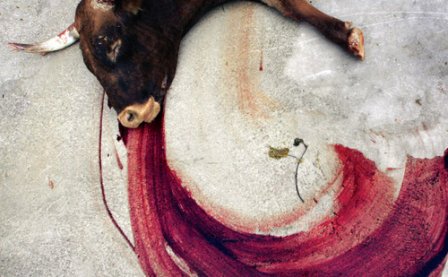Five Hierophantic Images
Bataille’s Mouth
He speculates that the mouth is “the beginning or, if one prefers, the prow of animals.” He speculates that humans, erect, no longer have an anatomical beginning. When we stand, we lose our atavistic composure. However, he speculates, there remains a link to our past. It happens, one night, when you stub your toe and crane your neck and curse. Stretch your neck, he says, and it becomes an “extension” of your spine — like a dog’s. The scream is the source of his animality; the silence is the result of his civilization.
Chiang Chieh’s Song
For monastics like him, silence serves a different function. “Once when young I lay and listened —” The vow of silence has nothing to do with talking, but rather posture. “— to the rain falling on the roof of a brothel.” Chieh’s rain, in turns, in years, is one rain, “on the tiles, all through the night.” It falls unchanging. The night. There is constancy in quietude when you listen, but it will take awhile to notice.
Bacon’s Dyer
From whence does the face split? He says, “I hope they’ll make glass soon which doesn’t reflect.”
Hölderlin’s Blest
In his honor, I’ll begin at the caesura. “But now I sit under the clouds,” amidst the ruins of divinities and Divine judgments. “But now I sit under the clouds,” where royalty once strode, commerce flourished and fell, woodworkers chipped away. He looks around and notices something askew. (Leopardi, elsewhere, saw it through his hedgerow.) Sit under the clouds and look around. You, too, are not alone.
Ruby’s Son
He sings Whitman’s song: “I do not deny the precious results of peace—” I want to believe that there is restoration within and beyond the earthy dialectics of scream and silence, of seen and unseen. I listen for it, and watch. In the winter’s dawn, I will face my thirty-fourth year. Pending all final mysteries, I sing his penultimate songs with their hope. Classical theology had a term — one in which I continually look ahead toward: apokatastasis. While I don’t believe art can achieve this (it is, I suppose, un-compositional, post-poetical), I nonetheless believe that it can suggest something akin to it. It can point toward the horizon: all nights converging into perpetual dawn. Going deep into his Hierophant, I can see flashes in the dark, numerous and tender. They sing like the grass growing on a grave. Here, look:
More about: Burial Hex




